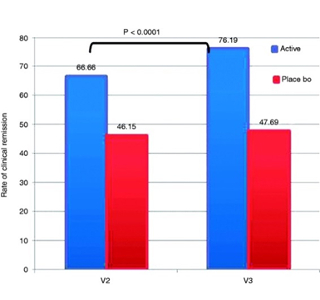In accordance with article 5 of the Spanish Law RDL1/2015, the information set out in the following sections is intended for healthcare professionals.
Access to this information and all use which may be made thereof or of these contents is exclusive responsibility of those who use them. Noventure will not be held liable for any illegal or improper use or for the manipulation of the contents and information included in these pages.
Magazine
BACKGROUND: Irritable Bowel Syndrome (IBS) is a common disorder characterized by visceral hypersensitivity and increased intestinal permeability. Stressful events can affect the onset and course of IBS. In rats, stress also induces visceral hypersensitivity and gut
hyperpermeability. Mucoprotectant agents such as gelatin tannate and xyloglucan, have been shown to provide protection to the intestinal mucosa and to exert anti-diarrheal effects. On the other hand, prebiotics exert beneficial effect on the gut via a bifidogenic effect into the
colon. Therefore, the aims of this study were to evaluate the effect of an acute vs a chronic treatment of a compound containing mucoprotectants (xyloglycan (XYL), pea proteins and tannins from grape (PPT) and a prebiotic (xylo-oligosaccharides (XOS) on visceral hypersensitivity
and gut hyperpermeability induced by an acute stress in rat.

Treatment with oligo- and polysaccharides and reticulated protein is safe, improving IBS symptoms and quality of life of patients with diarrhoea-predominant IBS.

Gelatin tannate added to ORS in children with acute diarrhea showed a significant decrease in bowel movements and stool consistency at 72 h, with shorter disease duration.

